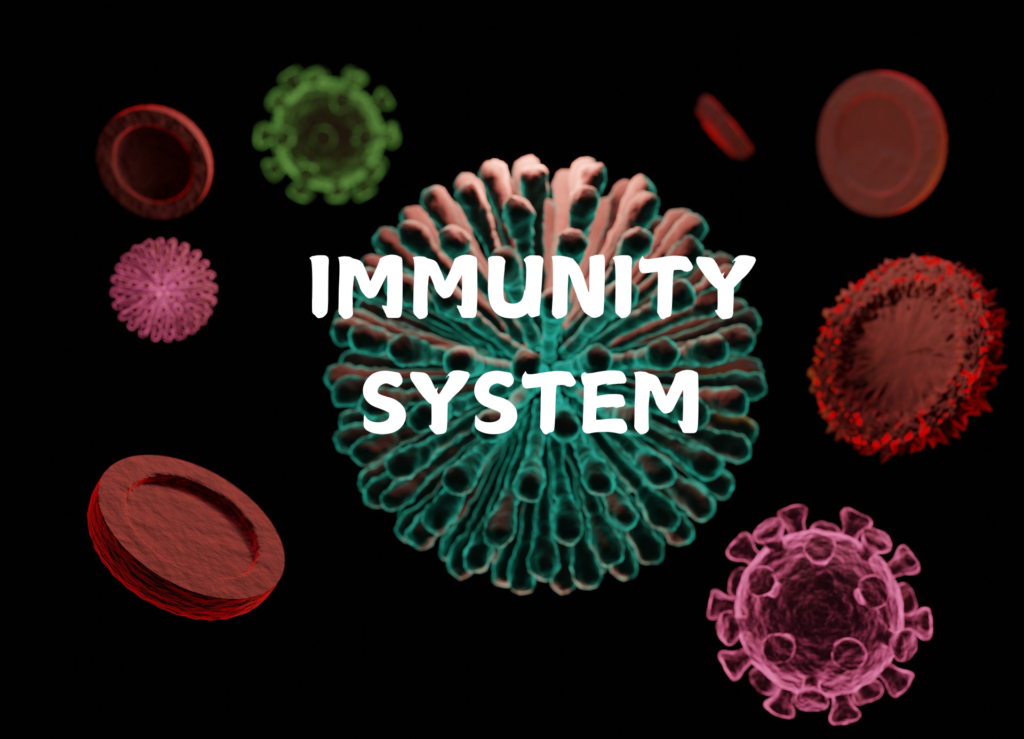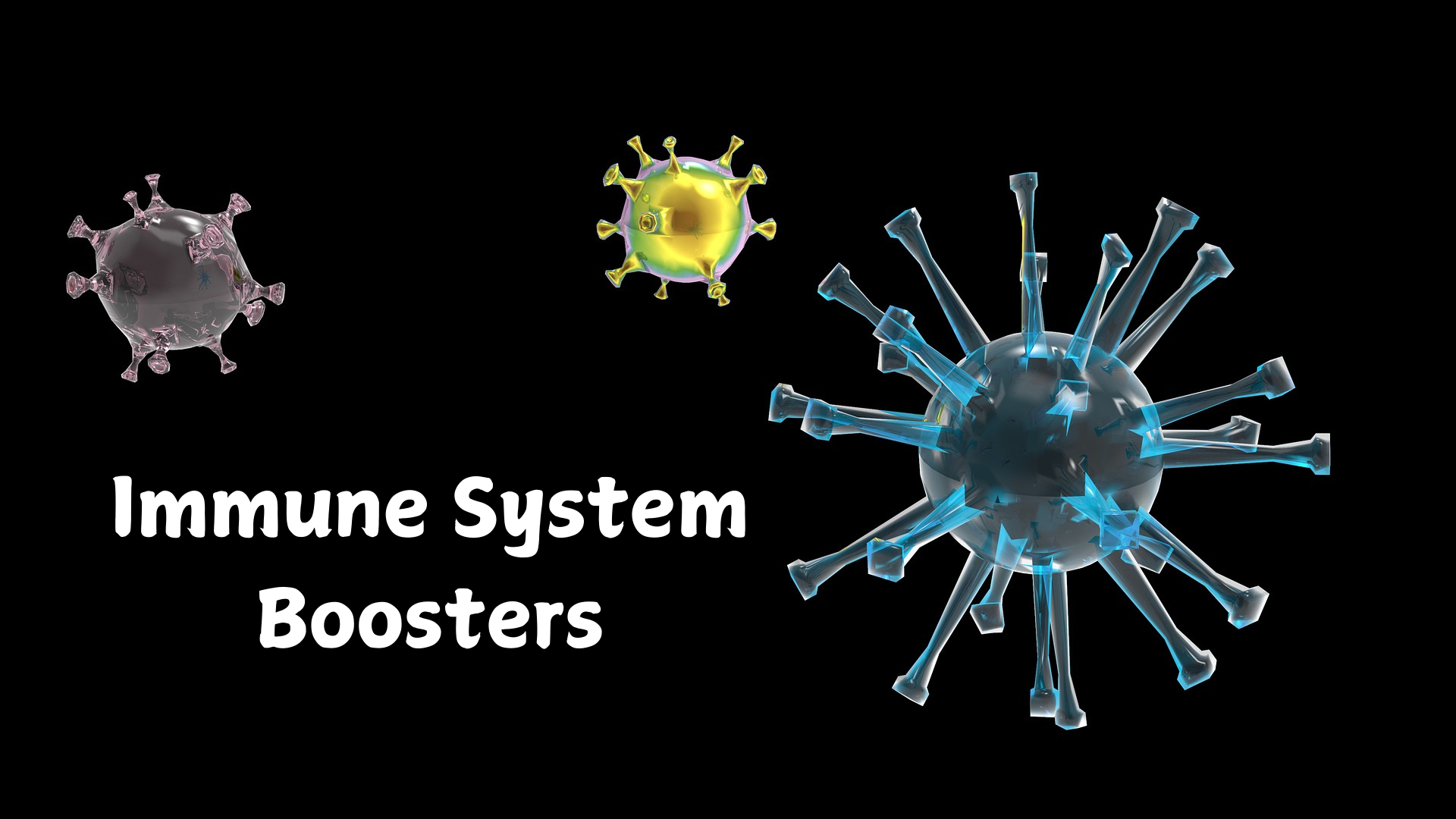In today’s fast-paced world, maintaining a strong immune system is more important than ever. Your immune system is your body’s natural defense mechanism against infections, viruses, and diseases. While genetics play a role in immune health, lifestyle choices and habits can significantly influence how well your immune system functions. In this blog post, we’ll explore the effective ways to boost the immune system, providing you with actionable tips and insights to help you stay healthy and resilient.
Table of Contents
Why Is Immune Health Important?
Immune health is essential for protecting the body from harmful invaders such as bacteria, viruses, fungi, and toxins. The immune system plays a critical role in maintaining overall health and well-being, helping to prevent infections, fight off illnesses, and promote recovery. Here’s why immune health matters:
1. Protection Against Infections
The primary function of the immune system is to protect the body from infections caused by various pathogens like bacteria, viruses, and fungi.
- First Line of Defense: The immune system acts as a barrier, preventing harmful organisms from entering the body through the skin, respiratory system, and digestive tract.
- Fighting Off Pathogens: When pathogens do manage to enter the body, the immune system recognizes and attacks them, preventing infections from spreading and worsening.
- Rapid Response: The immune system responds quickly to infections by producing antibodies and mobilizing white blood cells to fight off the invaders, ensuring that infections are controlled and eliminated.
2. Promotes Healing and Recovery
When the body experiences injury or illness, the immune system plays a vital role in healing and recovery.
- Wound Healing: The immune system helps repair damaged tissues by producing new cells and removing dead or infected ones, ensuring that wounds heal properly.
- Recovery from Illness: After an infection, the immune system continues to work to remove any remaining pathogens and promote full recovery, preventing relapse or chronic conditions.
3. Prevents Chronic Inflammation
While inflammation is a natural response to injury or infection, chronic inflammation can lead to various health problems. A healthy immune system regulates inflammation to prevent it from becoming harmful.
- Controlled Inflammatory Response: The immune system triggers inflammation to isolate and attack harmful invaders, but once the threat is eliminated, it works to reduce inflammation, preventing long-term damage.
- Prevention of Chronic Diseases: Chronic inflammation is linked to several diseases, including heart disease, diabetes, and autoimmune disorders. A balanced immune system helps prevent chronic inflammation and reduces the risk of developing these conditions.
4. Reduces the Risk of Autoimmune Disorders
A well-functioning immune system can distinguish between the body’s own cells and foreign invaders. When the immune system is compromised, it can mistakenly attack healthy cells, leading to autoimmune disorders.
- Self-Tolerance: A healthy immune system maintains self-tolerance, meaning it recognizes and spares the body’s own tissues while attacking foreign substances. This prevents the development of autoimmune diseases like rheumatoid arthritis, lupus, and multiple sclerosis.
- Prevention of Overactive Responses: In some cases, an overactive immune response can damage the body’s tissues. Proper immune regulation helps prevent these overreactions and protects against autoimmune conditions.
5. Supports Overall Health and Longevity
A strong immune system is closely linked to overall health and longevity. Individuals with a healthy immune system are less likely to experience frequent illnesses, infections, or chronic health issues.
- Reduced Frequency of Illness: People with strong immune systems are more resilient to common infections, such as colds and the flu, resulting in fewer sick days and better quality of life.
- Enhanced Longevity: A robust immune system contributes to a longer, healthier life by reducing the risk of infections, chronic diseases, and age-related immune decline.
6. Protection Against Environmental Toxins
In addition to fighting off infections, the immune system also helps protect the body from harmful environmental toxins and pollutants.
- Detoxification: The immune system works in conjunction with other organs, such as the liver and kidneys, to detoxify the body from harmful substances found in food, air, and water.
- Allergen Defense: The immune system helps regulate the body’s response to allergens, preventing overreactions and allergic symptoms. A well-balanced immune system ensures that allergens are managed without triggering severe allergic reactions.
7. Prevents the Spread of Infections
When an individual has a strong immune system, they are less likely to develop severe infections and are less contagious to others. This helps protect not only the individual but also those around them.
- Reduced Transmission: A healthy immune system can quickly eliminate pathogens, reducing the chance of spreading infections to others. This is particularly important in preventing the spread of contagious diseases.
- Community Health: By maintaining strong immune health, individuals contribute to the overall health of their community by reducing the prevalence of infectious diseases.
8. Adapts to New Threats
The immune system has the remarkable ability to learn and adapt to new pathogens, providing long-term immunity and protection.
- Immunological Memory: After encountering a pathogen, the immune system creates a memory of it, allowing for a faster and stronger response if the same pathogen is encountered again. This is the basis for how vaccines work, providing long-term protection against specific diseases.
- Adaptability: As new viruses and bacteria evolve, the immune system continuously adapts, learning to recognize and respond to new threats, helping the body stay protected against emerging infections.
9. Helps Prevent Cancer
The immune system also plays a role in preventing cancer by identifying and destroying abnormal cells before they can develop into tumors.
- Immune Surveillance: The immune system continuously monitors the body for abnormal or cancerous cells. When it detects these cells, it triggers a response to eliminate them before they can multiply and form tumors.
- Support for Cancer Treatments: A strong immune system enhances the effectiveness of cancer treatments like immunotherapy, which works by stimulating the immune system to fight cancer cells more effectively.
10. Boosts Mental Health
The immune system is closely linked to mental health, and maintaining strong immune health can positively impact mental well-being.
Resilience to Stress: A healthy immune system helps the body cope with stress, reducing the risk of stress-related illnesses and supporting overall mental resilience.g.
Immune-Mental Health Connection: Inflammation and immune dysfunction have been linked to mental health disorders like depression and anxiety. By supporting immune health, individuals can reduce inflammation and improve mental health.
Top Effective Ways to Boost the Immune System
Here are some of the most effective ways to boost the immune system, backed by science and expert recommendations:
1. Eat a Balanced, Nutrient-Rich Diet
A healthy diet is the foundation of a strong immune system. Focus on incorporating the following immune-boosting foods:
- Citrus Fruits: Oranges, lemons, and grapefruits are rich in vitamin C, which enhances immune function.
- Leafy Greens: Spinach, kale, and broccoli are packed with vitamins A, C, and E, as well as antioxidants.
- Berries: Blueberries, strawberries, and raspberries are loaded with antioxidants that combat oxidative stress.
- Nuts and Seeds: Almonds, sunflower seeds, and chia seeds provide vitamin E and healthy fats.
- Garlic and Ginger: These have natural anti-inflammatory and antimicrobial properties.
- Probiotic-Rich Foods: Yogurt, kefir, and fermented foods support gut health, which is closely linked to immunity.
2. Stay Hydrated
Water plays a crucial role in maintaining immune health. It helps transport nutrients to cells, flush out toxins, and keep mucous membranes moist, which acts as a barrier against pathogens. Aim to drink at least 8-10 glasses of water daily. Herbal teas and broths are also excellent options.
3. Get Enough Sleep
Sleep is essential for immune function. During sleep, your body repairs and regenerates cells, including those involved in immune response. Lack of sleep can weaken your immune system, making you more susceptible to infections. Aim for 7-9 hours of quality sleep each night.
4. Exercise Regularly
Moderate exercise is one of the most effective ways to boost the immune system. Physical activity improves circulation, reduces inflammation, and promotes the production of immune cells. Aim for at least 30 minutes of moderate exercise, such as walking, jogging, or yoga, most days of the week.
5. Manage Stress
Chronic stress can suppress immune function by increasing the production of cortisol, a hormone that weakens the immune response. Incorporate stress-reducing practices into your daily routine, such as:
- Meditation
- Deep breathing exercises
- Journaling
- Spending time in nature
6. Take Immune-Boosting Supplements
While a balanced diet should provide most of the nutrients you need, supplements can help fill in the gaps. Some of the best supplements for immune health include:
- Vitamin C: Supports the production of white blood cells.
- Vitamin D: Enhances immune response and reduces inflammation.
- Zinc: Plays a key role in immune cell function.
- Elderberry: Known for its antiviral properties.
- Probiotics: Promote a healthy gut microbiome.
Always consult a healthcare professional before starting any new supplements.
7. Maintain a Healthy Gut
Did you know that 70% of your immune system resides in your gut? A healthy gut microbiome is essential for strong immunity. To support gut health:
- Eat fiber-rich foods like fruits, vegetables, and whole grains.
- Include probiotic and prebiotic foods in your diet.
- Avoid excessive sugar and processed foods, which can harm gut bacteria.
8. Avoid Smoking and Limit Alcohol
Smoking and excessive alcohol consumption can weaken the immune system and make you more susceptible to infections. If you smoke, seek help to quit, and limit alcohol intake to moderate levels (up to one drink per day for women and two for men).
9. Practice Good Hygiene
Simple hygiene practices can go a long way in preventing infections and supporting immune health. Wash your hands regularly, avoid touching your face, and keep your living spaces clean.
10. Stay Connected and Positive
Social connections and a positive mindset can have a profound impact on immune health. Studies show that people with strong social ties and a positive outlook tend to have stronger immune systems. Make time for loved ones and practice gratitude daily.

Immune-Boosting Recipes to Try
Here are three easy and delicious recipes that incorporate effective ways to boost the immune system:
1. Immune-Boosting Green Smoothie
Ingredients:
- 1 cup spinach
- 1/2 cup frozen mango
- 1/2 banana
- 1/2 cup orange juice
- 1 tablespoon chia seeds
- 1 cup almond milk
Instructions:
Blend all ingredients until smooth. Enjoy as a refreshing breakfast or snack.
Benefits:
Packed with vitamin C, antioxidants, and fiber, this smoothie is a powerhouse for immune health.
2. Garlic and Ginger Immune Tea
Ingredients:
- 1-inch piece of ginger (sliced)
- 2 cloves of garlic (crushed)
- 1 cup hot water
- 1 teaspoon honey
- Juice of 1/2 lemon
Instructions:
Steep ginger and garlic in hot water for 10 minutes. Strain, then add honey and lemon juice.
Benefits:
Garlic and ginger have natural antimicrobial and anti-inflammatory properties, making this tea a great immune booster.
3. Turmeric Golden Milk
Ingredients:
- 1 cup almond milk
- 1/2 teaspoon turmeric powder
- 1/4 teaspoon cinnamon
- 1/4 teaspoon ginger powder
- 1 teaspoon honey
Instructions:
Heat almond milk in a saucepan. Add turmeric, cinnamon, and ginger. Stir well and simmer for 5 minutes. Add honey before serving.
Benefits:
Turmeric contains curcumin, a powerful anti-inflammatory compound that supports immune health.
Common Myths About Boosting Immunity
The immune system plays a vital role in protecting our bodies from infections and illnesses. While many people are eager to find ways to strengthen their immune system, there is a lot of misinformation circulating about how to boost immunity. Here are some of the most common myths about boosting immunity, along with the truth behind them:
1. Myth: Taking High Doses of Vitamin C Prevents Colds
One of the most popular misconceptions is that taking large amounts of vitamin C will prevent or cure the common cold.
- Truth: While vitamin C is important for immune function, there is no strong evidence to suggest that megadoses of vitamin C can prevent colds or significantly reduce their duration. Regular intake of the recommended daily amount of vitamin C can support immune health, but excessively high doses may lead to gastrointestinal issues like diarrhea.
2. Myth: You Can “Boost” Your Immune System Overnight
Some believe that by taking supplements, drinking certain teas, or doing specific exercises, they can instantly boost their immune system.
- Truth: The immune system is complex, and it cannot be “boosted” in a short period of time. Instead, maintaining a healthy immune system is the result of consistent, long-term habits, including a balanced diet, regular exercise, sufficient sleep, and stress management. There is no quick fix to strengthen the immune system overnight.
3. Myth: Supplements Are the Best Way to Boost Immunity
Many people think that taking immune-boosting supplements, such as echinacea, elderberry, or zinc, is the most effective way to improve immune function.
- Truth: While some supplements may provide immune support, they are not a substitute for a healthy lifestyle. Whole foods, such as fruits, vegetables, and lean proteins, provide essential vitamins, minerals, and antioxidants that are necessary for optimal immune function. Supplements should be used to complement, not replace, a nutritious diet and should only be taken if recommended by a healthcare professional.
4. Myth: More Exercise Means a Stronger Immune System
It is a common belief that the more you exercise, the stronger your immune system becomes.
- Truth: While regular moderate exercise is beneficial for immune health, excessive or intense exercise can actually weaken the immune system. Overtraining can lead to increased levels of stress hormones like cortisol, which can suppress immune function and make you more susceptible to infections. Striking a balance with regular, moderate physical activity is key to supporting your immune system.
5. Myth: Cold Weather Weakens the Immune System
Many people associate cold weather with getting sick, believing that exposure to cold temperatures weakens the immune system and makes them more susceptible to infections.
- Truth: Cold weather itself does not weaken the immune system. The increase in cold and flu cases during the winter months is more likely due to people spending more time indoors in close proximity to one another, which facilitates the spread of viruses. While it is important to stay warm, cold weather alone is not the direct cause of illness.
6. Myth: Boosting Immunity Will Prevent All Illnesses
Some people believe that if they can boost their immune system enough, they will never get sick.
- Truth: While maintaining a healthy immune system can reduce the risk of getting sick, no amount of “boosting” can make you immune to all infections. The immune system’s job is to defend against harmful invaders, but certain factors, such as new pathogens or underlying health conditions, can still cause illness. Even with a strong immune system, occasional illness is a normal part of life.
7. Myth: You Can Strengthen Your Immune System by Avoiding Germs
Some people believe that avoiding exposure to germs and staying in a sterile environment can help strengthen their immune system.
- Truth: While it’s important to practice good hygiene and avoid unnecessary exposure to harmful pathogens, completely avoiding germs can actually weaken the immune system. The immune system needs to be exposed to various microorganisms to build immunity and learn how to fight off infections. Over-sanitizing or living in a germ-free environment can limit this exposure and potentially weaken immune defenses.
8. Myth: Stress Doesn’t Affect Immunity
Many people underestimate the impact that stress has on the immune system and believe that stress is not a significant factor in immune health.
- Truth: Chronic stress can have a profound negative effect on the immune system. Long-term stress increases the production of stress hormones like cortisol, which can suppress immune function and make the body more vulnerable to infections. Managing stress through relaxation techniques, mindfulness, and exercise is essential for supporting a healthy immune system.
9. Myth: Drinking More Water Will Boost Your Immunity
Some believe that drinking large quantities of water will flush out toxins and boost the immune system.
- Truth: Staying hydrated is important for overall health, including immune function, but drinking excessive amounts of water will not “flush out” toxins or boost immunity. It’s essential to drink enough water to maintain hydration, but simply increasing water intake beyond what the body needs will not provide additional immune benefits.
10. Myth: Antibiotics Can Boost Immunity
Many people mistakenly think that antibiotics can help boost the immune system when they feel unwell, even if their illness is caused by a virus.
- Truth: Antibiotics only work against bacterial infections, not viral infections such as colds or the flu. Using antibiotics unnecessarily can lead to antibiotic resistance, which makes bacterial infections harder to treat in the future. Antibiotics do not “boost” the immune system and should only be used when prescribed by a healthcare professional to treat bacterial infections.
Conclusion
Your immune system is your body’s first line of defense against illness, and taking steps to support it is one of the best investments you can make in your health. By incorporating the effective ways to boost the immune system outlined in this post—such as eating a balanced diet, staying hydrated, exercising, and managing stress—you can strengthen your body’s natural defenses and enjoy a healthier, more vibrant life.
Remember, small, consistent changes can have a big impact over time. Start today, and your immune system will thank you!
By focusing on the keyword “the effective ways to boost the immune system“ throughout this post, we’ve highlighted practical, science-backed strategies to enhance immune health. Whether you’re looking to prevent illness or simply feel your best, these tips can help you achieve your goals.

